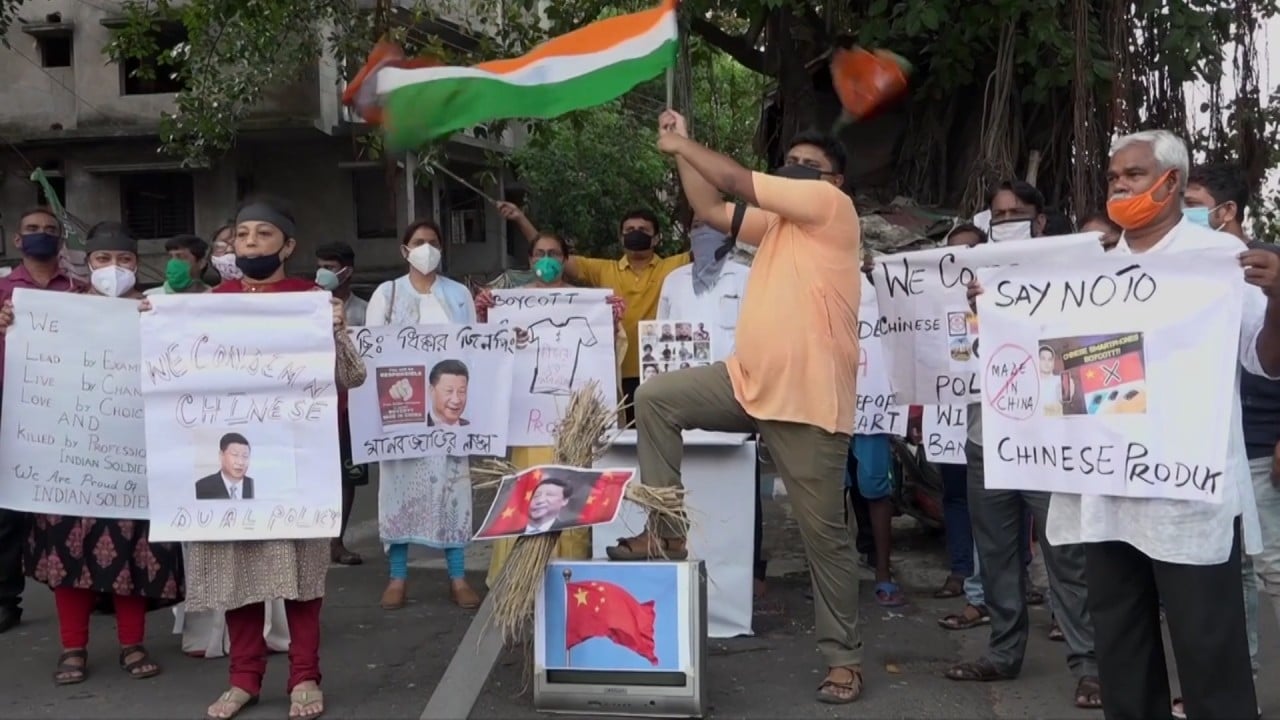
As China and India quarrel, stranded families get caught in between
- Cross-national families fear being further cut off from their loved ones after India bans WeChat and other Chinese apps
- The pandemic’s border closures are also leading to uncertainty as to when families can see each other again
For six months now, Naresh Subnani’s textile company in Shaoxing city, in the eastern Chinese province of Zhejiang, has not received any orders. Few people have also been dining at his award-winning Indian-Chinese restaurant in the same city since the coronavirus outbreak began.
Subnani, who has lived in China for the past 17 years, says the “India-China problem” may have had some effect on his businesses, but he is confident the two sides will kiss and make up.

For others, their China dreams – fuelled by the promise of higher incomes in a country with lower levels of crime and more advanced infrastructure – are already over.
One sales manager, who did not want to be named, said the uncertainty had driven him to quit China after four years there.

03:08
India bans dozens of Chinese apps, including TikTok and WeChat, after deadly border clash
Subnani said he had not seen his family since January, when his wife Dimple took their six-year-old daughter on a trip back to Kolkata during the Lunar New Year holiday.
Dimple, 34, lost her job as a kindergarten teacher in Keqiao after becoming stranded in India. She is part of a group of 151 families divided between the two quarrelling countries finding support and information in a chat group on Chinese messaging app WeChat.

Dipika Kantharia, 46, who is stranded in Mumbai with her 12-year-old daughter Mishcka, said her family was affected but that they were not the only ones suffering and wanted to be tough.
“We feel it’s a wait-and-watch period,” said Kantharia, who conducts speech-and-drama workshops in the southeastern city of Shenzhen, her home of the last nine years.
In spite of the circumstances and the diplomatic tensions, Kantharia said her experience in China so far was a positive one.
“China always treated us very well, with open arms and very friendly, helpful citizens, and we in return were the same with them,” she said.

01:54
Indian train carriages become Covid-19 isolation wards for surge in cases after lockdown eased
Meanwhile, Chinese citizens in India say the government’s decision to cut off access to 59 Chinese apps were causing them inconvenience, but that the country’s escalating number of Covid-19 cases was more worrying.
The situation prompted some Chinese workers to skip work for fear of contracting the disease, resulting in job losses.
“We were forced to resign as we did not want to get back to work as we feared we may catch the disease. Now having lost the job, we’d rather get back to China,” said one worker at a toy manufacturing company in Kakinada, Andhra Pradesh.
About 1,000 Chinese nationals have returned home, with about 2,000 remaining in India.

01:58
Indians call for boycott of Chinese goods after deadly border clash with China
Li Xiaoyu (name changed for privacy reasons), a Chinese student learning Hindi in New Delhi, is among those who are staying put, however.
Li said she was overwhelmed by the news of the border stand-off and the growing calls for a boycott of Chinese products in India.
Despite this, she said she had not experienced any discrimination and was well-treated by her homestay family.
“Most people in India are friendly. I did not face any discrimination in the wake of rising tensions,” Li said, although she acknowledged that her interactions with others had dwindled because she remained indoors most days during the lockdown.
“I in fact received moral and emotional support from my house owner’s family,” she said.
Li said her decision to remain in India was driven by practical reasons. “I didn’t want to risk going back to China and not be able to return for the next semester,” she said.
For James, the owner of a Chinese restaurant in Bangalore, business was down but he did not think it was due to backlash from the India-China dispute.
“We barely see customers walking in after we reopened the store following coronavirus lockdown relaxation,” he said. “All other restaurants are also suffering. I don’t feel this has much to do with China.
“I don’t think we should mix food with politics,” he added. “Food makes everyone happy.”
Additional reporting by AP


